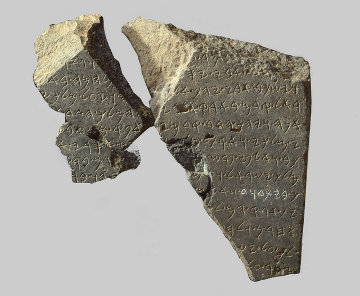 Just a day after I wrote a post on The Veracity of the Bible which included links to articles about fairly recent archaeological discoveries that confirm the biblical record, Eric Metaxas wrote an article that describes the blinders worn by much of academia when they evaluate these kinds of new evidences. In the article, titled A Flood of Evidence, Chronological Snobbery and Archeology, he describes a concept using terms first coined by C.S. Lewis. The article starts out like this:
Just a day after I wrote a post on The Veracity of the Bible which included links to articles about fairly recent archaeological discoveries that confirm the biblical record, Eric Metaxas wrote an article that describes the blinders worn by much of academia when they evaluate these kinds of new evidences. In the article, titled A Flood of Evidence, Chronological Snobbery and Archeology, he describes a concept using terms first coined by C.S. Lewis. The article starts out like this:
In his conversion story, “Surprised by Joy,” C. S. Lewis explains how his close friend, Owen Barfield, demolished his “chronological snobbery.” Lewis defined chronological snobbery as “the uncritical acceptance of the intellectual climate of our own age and the assumption that whatever has gone out of date is on that count discredited.”
In Lewis’s time, much of academia was already convinced that every past generation formed a staircase of progress, leading (of course) to enlightened modernity. And since Lewis’s death, many intellectuals have only become more convinced of their own perch at the pinnacle of history. These days, we barely even notice the snobbery.
Metaxas goes on to list some relatively recent discoveries with links to some great articles about what they mean with respect to the veracity of the biblical record. An example of one of the discoveries is described in a post on the same site about confirmation that King David was an actual, living breathing person (the famous Tel Dan Stele). There are additional links in and after the story to additional confirmations. Then he goes on to describe the silliness of chronological snobbery and how it dampens the acquisition of a better understanding of ancient history.

Leave a Reply